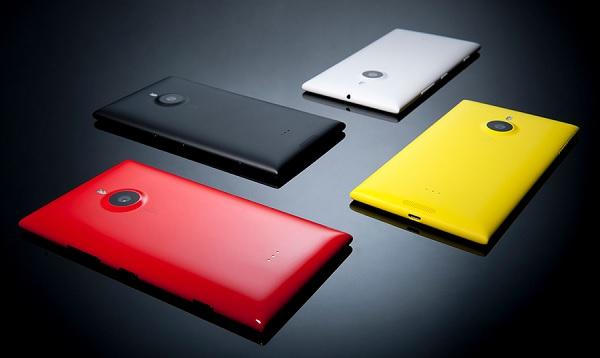
Good news for anybody following the Windows Phone scene today! Earlier today, we learned that Windows Phone will be gaining new manufacturers for the platform, including companies like Lenovo and LG. ZTE, Foxconn, Gionee, JSR, Karbonn, Lava and Longcheer are also part of that lineup, although the two most important around these parts are of course going to be Lenovo (which now owns Motorola, if you recall) and LG. These companies will all be joining the likes of Nokia, HTC and Samsung, all of which already contribute to the Windows Phone lineup.
What exactly does this mean for the people, though? New hardware choices are of course the biggest upside to all of this, but as it stands right now it might take some convincing before people are willing to switch from the currently dominating Nokia hardware, which not only gets praised for its tanky hardware reputation and great cameras, but it also gets a whole list of perks over other Windows Phones made by HTC or Samsung. It's fairly safe to say that if you're going to get a Windows Phone device, you would get the most out of getting a Windows Phone by Nokia. The question now is: Will these other manufacturers be able to out-hardware Nokia, or will they end up being mere afterthoughts?
One of the first things I thought about when reading about these new Windows Phone additions was that, for the most part, these new additions will have to rely heavily on hardware design to win people over. When it comes to Android you have changes both in hardware and software. You can skin over it and give people the impression that they are getting something different; and essentially, they are. You pick up an HTC One and you're running on HTC Sense, a completely different skin than if you were to hold it side-by-side to a Samsung Galaxy S4, running on Samsung's TouchWiz. Samsung's phones also have a whole slew of features that are completely different to what HTC offers. Both phones also look vastly different physically. But when it comes to Windows Phone, there is no skinning. All Windows Phones are pretty much going to look identical across the board software-wise, only relying on the physical design of the phone to make it stand out.
It's for this reason that I have to wonder whether the addition of new manufacturers will actually do anything for Windows Phone at all. The main problem with Windows Phone isn't the lack of enthusiasm for the hardware; even if people aren't interested in the Nokia phone or the design, HTC and Samsung do a pretty fine job of creating decent Windows Phones as well. On the other hand, I can't see any harm coming from adding new manufacturers to the line-up. While it might not seem obvious from the start that new manufacturers are taking interest in Windows Phone, what this can do is pique the interest of developers, which in turn may be able to help with the application issue that Windows Phone still struggles with today.
I have admitted that Windows Phone does feel lacking in the app department compared to iOS and Android, that part I feel is true about the stigma around the platform. However, it would be unfair to throw the entire platform under the bus because of this, because it's a fixable problem. I do feel that Windows Phone has potential, but that doesn't do much. What it needs is for developers and companies with mainstream apps to feel the same way so that official, well put together applications can be made for it. Right now, the picking seem rather slim when it comes to applications that run smoothly. The interface? Smooth as butter most of the time, but the applications? Not so much. Thus far, that's really the only complaint that I have about the platform. But that's something that I hope will change with the announcement of more manufacturers taking interest in the platform.
In the end, yes, I believe that more manufacturers partnering up with Windows Phone devices will matter. Maybe not right off the bat, but hopefully this move will show people that Windows Phone is still making progress and plans to progress.
Readers, what are your feelings regarding this move? Does the addition of manufacturers like LG and Lenovo give you hope for the platform's future, or do you think it will flop? Let us know your thoughts in the comments below!
Images via Digital Trends, Laptop Mag